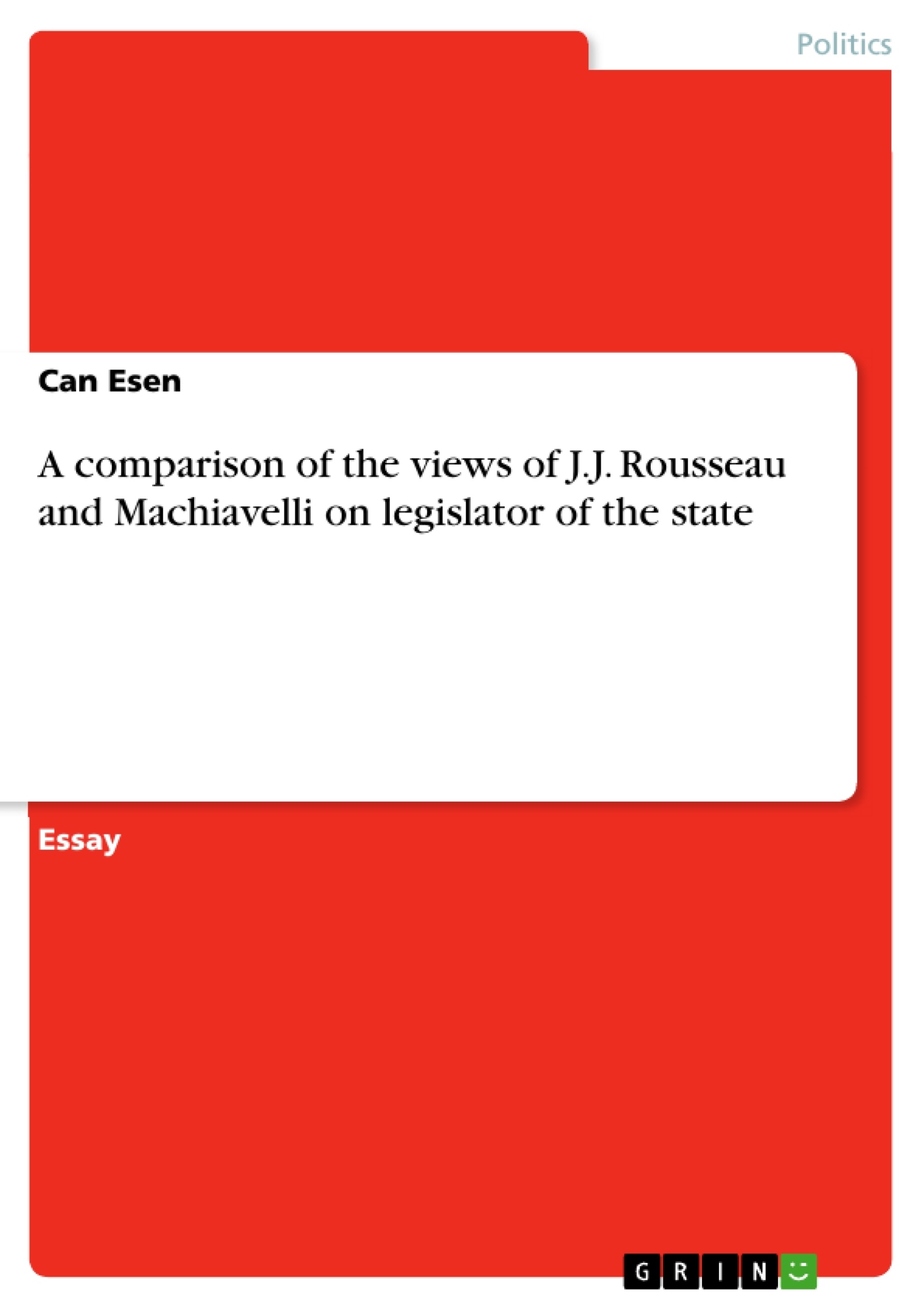The character and role of the legislator in a perfect type of government are common themes in the thought of two of the great minds in Western philosophy: Machiavelli, who wrote during the Renaissance era and Jean Jacques Rousseau, who wrote during the enlightenment. One can find both differences and similarities on both of the two thinkers’ ideas they used for describing the ideal legislator. They both argue that authority should not rest in the hand of just one man, but both give different reasons for this. Machiavelli says that ‘many should remain in charge of the state’ in order to guarantee stability and make it last long because otherwise there will be whether ‘tyranny’ or ‘anarchy’; Rousseau believes that ‘the legislator’ should not be the sole authority and should not be granted any legislative right in order protect ‘the general will’ of the people, because otherwise the legislator would ‘be tempted to act according to his ‘private will’ and destroy the ‘common will’ (Machiavelli 2012, p.356 & Rousseau 2012, p.572).
Table of Contents
- Introduction
- The Role of the Legislator
- Machiavelli
- Rousseau
- Why the Organizer of the State Should Not Remain as the Sole Authority?
- Machiavelli
- Rousseau
- Conclusion
Objectives and Key Themes
This essay aims to compare and contrast the ideas of Jean-Jacques Rousseau and Niccolò Machiavelli on the role and character of the legislator in government. It explores their contrasting views on the ideal legislator and the ideal form of government. The essay focuses on the differences and similarities between their perspectives on the functions of the legislator and the importance of shared power.- The role of the legislator in an ideal government.
- The nature and characteristics of the ideal legislator.
- The importance of shared power and the limitations on the legislator's authority.
- The necessity for a legislator with extraordinary abilities.
- The justification for the use of violence by the legislator.
Chapter Summaries
The essay begins by examining the role of the legislator as envisioned by both Machiavelli and Rousseau. Machiavelli emphasizes the need for a legislator who can create a stable and lasting state by combining elements of monarchy, aristocracy, and democracy. He cites Lycurgus of Sparta as an example of a successful legislator who achieved this through the efficient division of duties. Rousseau, on the other hand, views the legislator as a guide or administrator, whose primary function is to protect the "general will" of the people by ensuring laws are not based on particular interests. He emphasizes that the legislator should be a representative of the general will, but not have control over the laws themselves. The essay then delves into the reasons why both thinkers believe that the organizer of the state should not hold absolute authority. Machiavelli argues that shared power fosters stability, as it discourages individuals from challenging the state. Rousseau contends that the legislator should have no legislative right to prevent him from acting according to his own private will, potentially corrupting the general will.Keywords
The essay explores key concepts like the role of the legislator, the ideal government, shared power, the general will, the nature of authority, and the justification for violence in the context of political thought. These ideas are examined through the lens of the contrasting perspectives of Rousseau and Machiavelli.- Quote paper
- Can Esen (Author), 2012, A comparison of the views of J.J. Rousseau and Machiavelli on legislator of the state, Munich, GRIN Verlag, https://www.grin.com/document/270042




